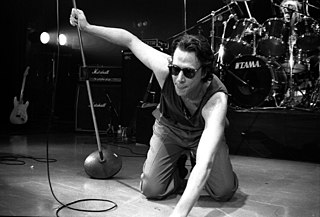A Quote by Andre Dubus
One of the things I learned about writing a memoir is you can’t drag the reader through everything. Every human life is worth 20 memoirs.
Related Quotes
Lately I've been thinking about the idea that all novels are, at least in some way, about the process of writing a novel - that the construction of the book and the lineage of people constructing novels are always part of the story the author is telling. I think the equivalent for memoir should be that all memoirs are, in some way, about the process of memory. Memoirs are made out of a confusing, flawed act of creation.
The secret of the truly successful, I believe, is that they learned very early in life how not to be busy. They saw through that adage, repeated to me so often in childhood, that anything worth doing is worth doing well. The truth is, many things are worth doing only in the most slovenly, halfhearted fashion possible, and many other things are not worth doing at all.
I don't remember reading much at all during the writing of Eileen. I go through several years-long dry spells and I don't feel like reading at all. I was working part-time for a guy in Venice, California while I drafted Eileen. He wanted help in writing his memoir. The research had a lot to do with the 60s, so that must have informed my sense of the place and time in my novel, and perhaps even the memoir point-of-view. He was also from New England. It was a fun job. I learned a lot about motorcycle clubs, Charles Manson, hopping freight trains.
Everything I learned about women, I learned from the ages of 13-16. Every girl would talk to me about their problems, and none of them wanted to date me. So, I learned all of these things. So, when I finally got to the place where I could hit on girls, I just referenced back to all the things that I learned in high school.
If you're going to do a memoir, then it's sort of at this age - in your late sixties or seventies - that you do it. I don't understand people who do memoirs when they're 20. I think most people need a little more time than 20 years to become the person they are. In fact, that process of becoming who you are is still ongoing when you get older, where you go, "Let's see where my next 10 years is going to take me." S
There's an old adage in writing: 'Don't tell, but show.' Writing is not psychology. We do not talk 'about' feelings. Instead the writer feels and through her words awakens those feelings in the reader. The writer takes the reader's hand and guides him through the valley of sorrow and joy without ever having to mention those words.






































